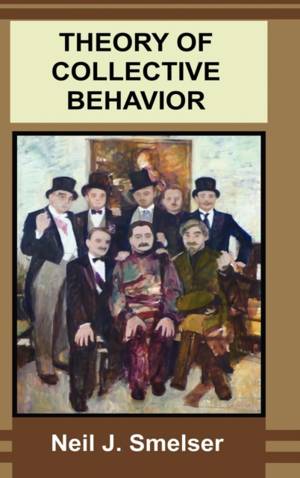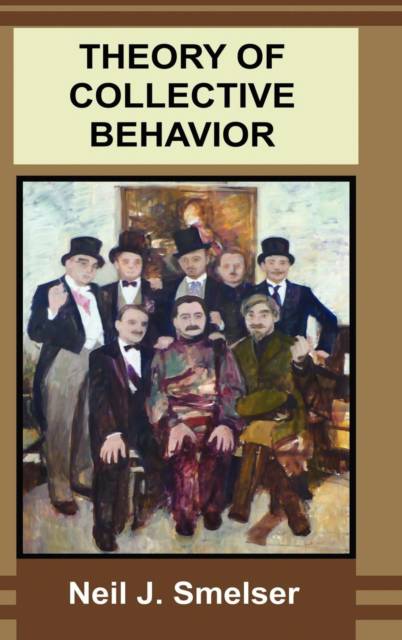
- Retrait gratuit dans votre magasin Club
- 7.000.000 titres dans notre catalogue
- Payer en toute sécurité
- Toujours un magasin près de chez vous
- Retrait gratuit dans votre magasin Club
- 7.000.0000 titres dans notre catalogue
- Payer en toute sécurité
- Toujours un magasin près de chez vous
Description
The golden anniversary edition of THEORY OF COLLECTIVE BEHAVIOR is a modern republication of a sociological and social psychology classic. Adding a reflective new Preface by the author and an extensive, analytical Foreword by MIT's Gary Marx, it is an authorized and painstaking edition - not just scanned and forgotten like most such reprints today. As part of the 'Classics of the Social Sciences' Series by Quid Pro Books, it features quality formatting such as legible figures and tables, a complete subject index, and an extensive bibliography (including updating references for the new Foreword). Moreover, the original page numbers are embedded into the text for continuity of citations, syllabus, and referencing. As Gary Marx notes in his Foreword, "The book is elegant, original, carefully crafted and forcefully argued. In its totality, it is a fine example of an effort to define a field, identify major types and systematically connect central variables. This is done to organize an amorphous collection of behaviors that seem to be intuitively linked, but which had not previously enjoyed an equivalent framework for identifying those links. Smelser's innovative treatment of the form known as the craze nicely illustrates this. Drawing on his extensive knowledge of economic history and applying stages of the value-added process, he shows commonalities across areas previously seen as distinct - such as economic swings, expressive crowds and fads and fashion - and offers a systematic way to differentiate these from other forms. The sense of craftsmanship and the care in construction can serve as a model for theorizing and for the effort to both acknowledge and yet reduce the indeterminacy of social phenomena." Marx concludes, "As 2011 events such as the Tsunami in Japan and the unexpected uprisings in the Middle East suggest, the importance of the field and the need to advance knowledge is not just historical. This book remains a rich contribution toward that advancement." NEIL J. SMELSER is professor emeritus of sociology at the University of California, Berkeley.
Spécifications
Parties prenantes
- Auteur(s) :
- Editeur:
Contenu
- Nombre de pages :
- 384
- Langue:
- Anglais
Caractéristiques
- EAN:
- 9781610271028
- Date de parution :
- 21-08-11
- Format:
- Livre relié
- Format numérique:
- Genaaid
- Dimensions :
- 156 mm x 234 mm
- Poids :
- 712 g

Les avis
Nous publions uniquement les avis qui respectent les conditions requises. Consultez nos conditions pour les avis.






